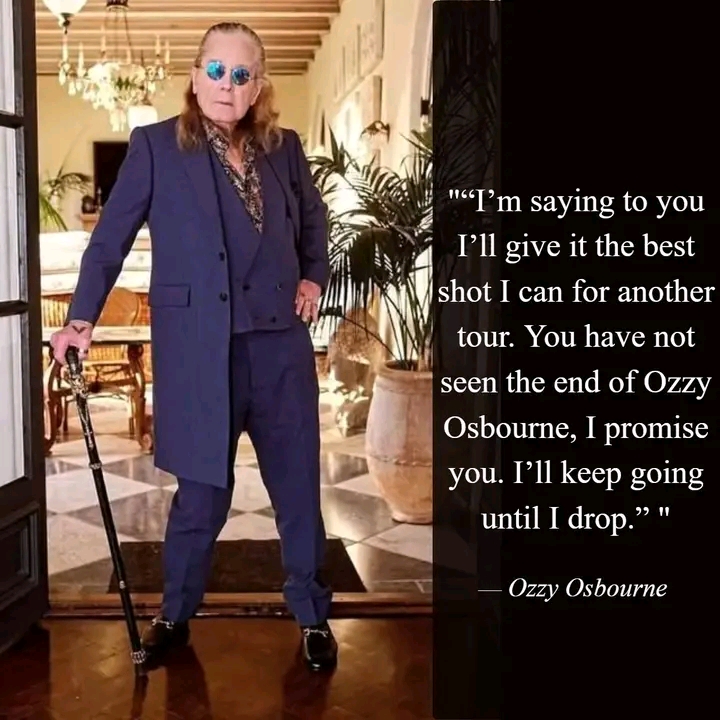Born John Michael Osbourne on December 3, 1948, in Birmingham, England, Ozzy Osbourne would become one of the most iconic and unpredictable figures in music history. As the frontman of Black Sabbath, Ozzy helped forge an entirely new genre in the late 1960s—heavy metal—delivering eerie, thunderous vocals that danced alongside Tony Iommi’s crushing guitar riffs. Songs like “Paranoid,” “Iron Man,” and “War Pigs” weren’t just hits; they became the blueprint for a sound that still defines metal today.
After being fired from Sabbath in 1979, Ozzy’s career might have ended there. Instead, it exploded. His solo debut *Blizzard of Ozz* produced classics like “Crazy Train” and “Mr. Crowley,” introducing guitarist Randy Rhoads and showing that Ozzy could thrive outside the band. His live shows were outrageous, often shocking, but always magnetic. Despite a long and public struggle with addiction, Ozzy’s resilience never wavered. He faced his demons and kept returning to the stage.
In the early 2000s, *The Osbournes*—a reality show starring Ozzy and his family—introduced him to a new generation. Far from the terrifying “Prince of Darkness” image, viewers saw a funny, confused, lovable dad navigating domestic chaos. It made Ozzy a household name in an entirely new way.
In recent years, health issues have limited his touring, but his passion hasn’t faded. In 2020, he released *Ordinary Man*, an introspective album featuring collaborations with Elton John, Post Malone, and Slash. The record reminded fans that even as his body slows, Ozzy’s spirit roars on.
Today, Ozzy remains one of metal’s most beloved and enduring figures. Whether through music, television, or his unfiltered personality, he’s left an indelible mark on culture—and fans around the world continue to wait for what he’ll
do next.










